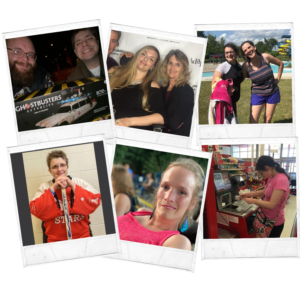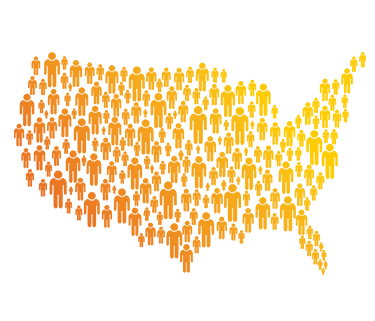Making it Personal: Continuing the Fight for Home and Community-Based Services
For decades, people with disabilities have expressed their undeniable preference to live among family and friends in their own community. Just ask Kayte: “I [want to] tell Congress how much I want to live out in the community one day and how I need HCBS (home and community-based services) to do so.”
HCBS support people with disabilities by giving them the tools to independently engage in everyday activities such as working at a job in the community, making food and eating, managing money and medications, bathing and dressing, and more. Unfortunately, for Kayte and many others, life in the community remains a dream. Currently, 800,000 people with disabilities remain on waitlists, with no access to these services due to insufficient funding and direct support worker shortages.

The Arc and our network of people with disabilities, family members, and allies have continued to relentlessly push for additional funding to address this crisis. But it’s the stories from the people who rely on these invaluable services themselves who make the most compelling case for why we must invest in them.
“Thanks to my HCBS waiver I can be a part of my community, safely be transported to and from work, participate in activities in the community/with my friends, practice meal prep and cleaning etc. I have autism and my waiver has covered sensory equipment to help meet my sensory needs.” – Chloe
“I only receive in home supports, supports to help me with day to day things, help making sure food is still good, not spoiled, and help with cooking….I have choice in who my staff is — it’s all family. These items listed allow me to remain in the home, and be very independent. I cook my own meals, wash my own laundry, do my own grocery shopping.” – Kayte
“My supportive employment helps me keep a job in the community and provide support when needed. Because of supportive employment I am able to work as a peer support specialist at my local [chapter of The] Arc and also volunteer at American Red Cross. Without all these services I wouldn’t have the necessary supports in order to do things independently. The importance of HCBS Services is very critical to many people with disabilities. If you make cuts to these services or limit the services, it puts a barrier on the person with a disability as well as the person providing service(s). These services help me in my life and my life would look different without these services.” – Joe
“I have 10 1/2 hours, seven days a week [for HCBS] and can only hire [four] people. Another thing is that CMS (Centers for Medicare & Medicaid Services) needs to pay more for its workers—the reimbursement rate is not enough for us to compete with any other easy job out there. I am 38 and without HCBS services I would be forced into the nursing home and lose everything I’ve worked my whole life for and my precious little dog who is my life.” – Jen
“COVID-19 has exacerbated systems such as Personal Care Attendant services that were already broken. A Medicaid Consumer Directed Attendant’s paycheck has never been close to a living wage pay rate. What that translated to during COVID-19 is I could not find attendants to assist me with activities of daily living in my home. Inequitable attendant pay rates created a barrier to me to access Home and Community Based Services (HCBS).” – Ivy
While negotiations for HCBS legislation continue, there remains strong commitment for the cause in Congress. Now is not the time to back down. We must continue to educate about the importance of HCBS for people with disabilities and their families so that we can secure the funding we desperately need.
Every story matters. Share yours now with The Arc’s action alert!








